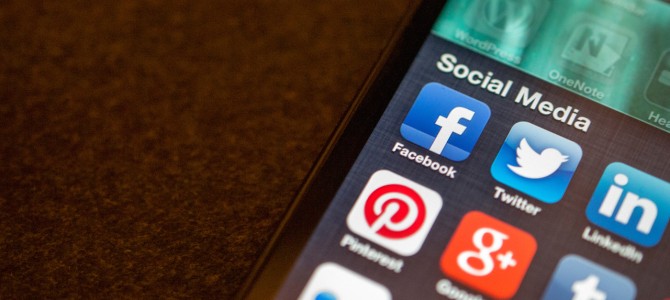I used to consider linking to an article to be one of the more valuable, less narcissistic things you could do on Facebook—compared with posting an album of selfies, say. Now I think the opposite is closer to the truth.
Maybe you and everyone in your social network or Twitter feed are engaged in a deep and enriching exchange of ideas. But collectively the dissemination of information through social media fuels what is really only an illusion of that process — a solipsistic and ultimately unedifying one.
That’s because at bottom, social sharing of information is often not actually about sharing information. It’s about the sharer letting everyone know that they are knowledgeable or right-thinking or caring.
A ThinkProgress reader, for example, who shares the post “Top Catholic Leader Defends Hobby Lobby, Claims Women Can Just Buy Birth Control At 7-11” is not really relaying any information to his social circle, the majority of whom will glance at the (misleading) headline, perhaps click on it and scan enough to have their pre-existing prejudices confirmed, and go on with scrolling through their feeds. What the person who shares this post is actually doing is saying: “I am the sort of person who finds religious zealots and their anti-woman stance deplorable.”
The same sort of thing happens, of course, across the political spectrum, and the number-crunchers in charge of driving up website traffic understand this dynamic. They eventually figured out that not only did they need to focus on writing attention-grabbing headlines, they needed to craft them in a way that would make people want to share them, reading and sharing being distinct behaviors.
Advertisers understand that a “share” on Facebook is valuable precisely because, as the CEO of one social-media firm puts it, “It says people endorse your content to the point of putting their reputation on the line.” In other words, yes, a retweet kind of does equal an endorsement.
Sharing information as a way of expressing identity isn’t something that’s done only with content from explicitly ideological or partisan outlets, though. Consider this from David Leonhardt’s introduction to the latest venture in “explanatory journalism,” the New York Times’ The Upshot:
We believe many people don’t understand the news as well as they would like. They want to grasp big, complicated stories — Obamacare, inequality, political campaigns, the real-estate and stock markets — so well that they can explain the whys and hows of those stories to their friends, relatives and colleagues.
On the one hand this looks like an attempt to offer an antidote to shallow news consumption. But note that, according to Leonhardt, it’s not pure intellectual curiosity or the desire to be well informed about the important issues of the day that makes your average Upshot reader an avid news consumer. It’s the desire to impress his peers with his knowledge. He sees himself as the kind of person to whom party-goers turn for elucidation of current events, and he needs a news source that will help him with that.
Obviously, people who share a lot are also often deep and knowledgeable readers. But is it really possible that everyone who links to something with the instruction to “stop what you are doing and read this now” would actually do so themselves? And the sheer volume of such social sharing adds up to the equivalent of ordering a Piketty-like bestseller a week, talking it up, and then putting it on your bookshelf alongside a dozen other aspirational reads. You want to signal that you’re conversant in what other people are talking about, or actually become marginally so — or both.
So what’s so bad about our obsession with socializing the news?
For one, the people on the receiving end of the sharing aren’t really reading the things they click on, either. A Washington Post story recently suggested that the way we read on the Internet — skimming and scanning and moving on to the next thing—is ruining our ability to sit down with a challenging book. It went viral. So, too, did discussion of The Shallows, the 2011 book on how our media consumption is becoming broader and more rapid, but less deep, with real effects on our brains.
I’m not sure I know anyone who plumbed the actual pages of The Shallows, but I’m with the skeptics on this: I don’t think the way our brains function is actually changing. It’s just that people are becoming habituated to a different—I would say worse—way of consuming information.









